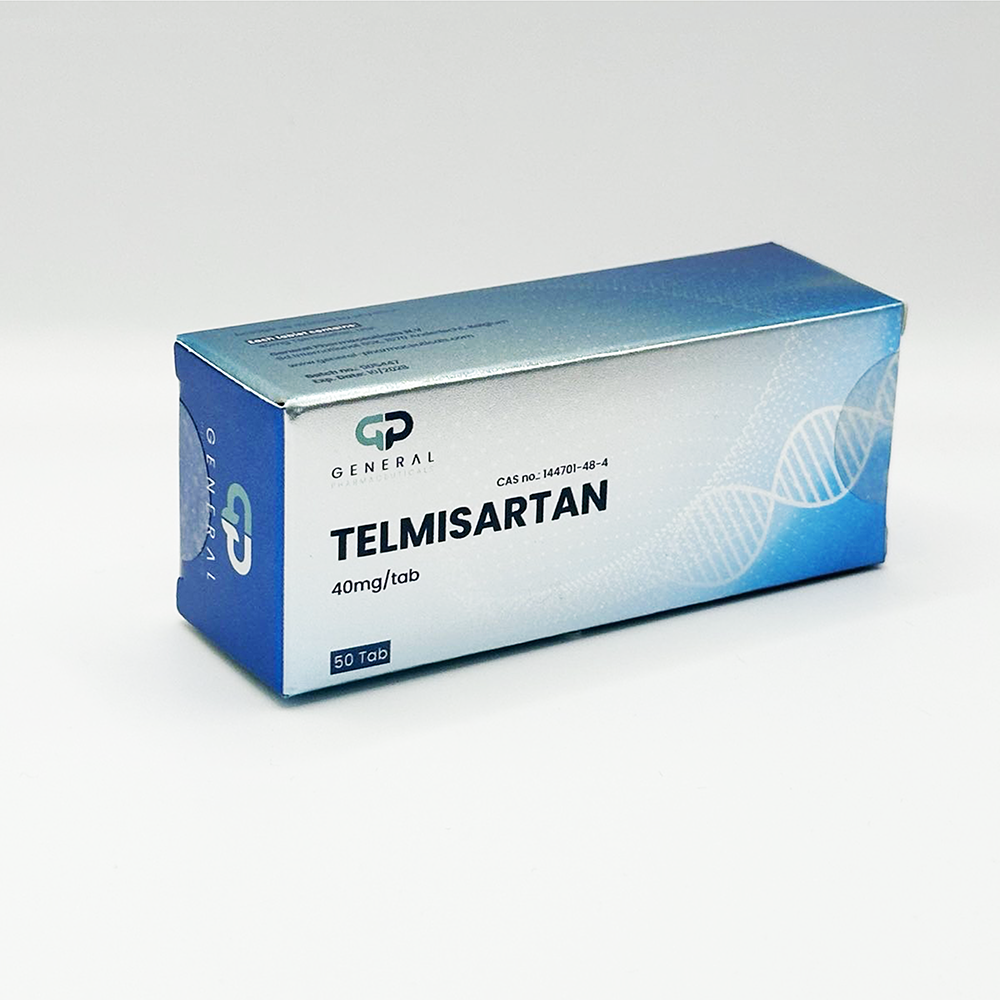
Telmisartan
Telmisartan is an angiotensin II receptor blocker (ARB) commonly used to treat high blood pressure (hypertension) and reduce the risk of cardiovascular events, such as stroke and heart attack. It helps improve overall heart health by relaxing blood vessels, making it easier for the heart to pump blood. Telmisartan is also beneficial in managing other conditions like chronic kidney disease and diabetic nephropathy, especially in individuals with hypertension.
Medical Uses
Telmisartan is primarily prescribed for the treatment of hypertension, either as a monotherapy or in combination with other antihypertensive medications. By lowering blood pressure, it reduces the risk of cardiovascular diseases like stroke, heart attack, and kidney failure. Telmisartan is also used to protect kidney function in patients with diabetes-related kidney problems (diabetic nephropathy) and in those with chronic kidney disease, especially in individuals who are at a higher risk of kidney damage.
Mechanism of Action
Telmisartan works by blocking the action of angiotensin II, a hormone that constricts blood vessels and raises blood pressure. It binds to the angiotensin II type 1 receptor, preventing angiotensin II from exerting its vasoconstrictive effects. By doing so, it helps dilate blood vessels, which in turn lowers blood pressure and reduces the strain on the heart and kidneys. This mechanism also contributes to its beneficial effects in reducing the progression of kidney disease.
Side Effects
While telmisartan is generally well-tolerated, some individuals may experience side effects. Common side effects include dizziness, headache, and fatigue. Less frequently, patients may experience gastrointestinal issues such as diarrhea or nausea, elevated blood potassium levels, or kidney dysfunction. Rare but serious side effects can include low blood pressure, liver problems, or an allergic reaction leading to swelling. It is important to seek medical attention if any unusual symptoms occur.
Interactions
Telmisartan may interact with several medications, potentially affecting its efficacy or increasing the risk of side effects. It can interact with other blood pressure medications, diuretics, and potassium supplements, potentially leading to dangerously low blood pressure or elevated potassium levels. Non-steroidal anti-inflammatory drugs (NSAIDs) can reduce the effectiveness of telmisartan and may increase the risk of kidney issues.

